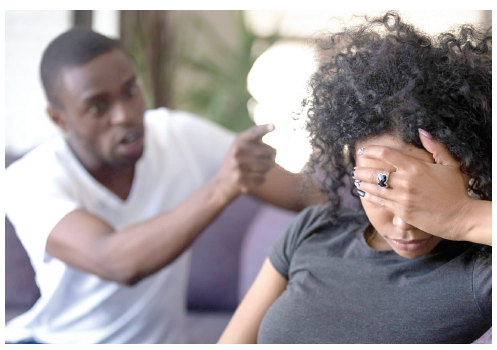The lonely journey of divorced church members

Ten years ago, Jennie Wachira went through one of the hardest moments in her life. Her husband of 12 years had left her after what she claims as years of physically abusing her.
“I suffered domestic violence that resulted to loss of two pregnancies. One was a miscarriage and the second was a stillbirth after a thorough beating. I was in an abusive marriage for long, but I didn’t seem to realise the level of toxicity, hence I stayed on hoping things would change. It is only when he noticed that their children were getting affected psychologically that one day, he walked out,” narrates the Divorce Recovery Coach and Counselling Psychologist.
Being locked out of her house for an entire night with her daughter, being insulted, beaten and tortured are some of the things that Jennie claims she endured in her marriage. They separated and reconciled twice before they finally called it quits.
Unwilling to leave
“We have had court battles relating to child custody and maintenance and also the dissolution of our marriage. At some point, I also sued him for committing bigamy after I learned that he went ahead to marry another woman before dissolving our marriage. It was not easy for me and the children even after divorce. It was such a painful experience,” continues the mother of two.
Looking back, Jennie feels that she stayed because she had normalised abuse. She thought that being in an abusive marriage is how love is.
“I was not in a good state of mind to make a bold decision to leave. Then leave to where? Leave a marriage that I built from scratch? I was ready to die for it. Perhaps if he didn’t leave, I could still be there. It’s more hurting for someone walking out on you, especially if they were the offenders,” she shares.
Life as a divorced woman was not easy as she watched her children grow without their father. Providing for them financially was also difficult and also making critical decisions about their welfare. In gatherings, when other children were talking of their fathers, they had nothing to say about theirs.
“The society thinks of children from a single parent home as being undisciplined. I shielded them by not talking ill of their father to them. I encouraged them to talk to him and meet him when he requested. I also assured them that we both loved them and that will not change. I also reassured them that they were not the cause of our divorce, which gave them security,” she narrates.
Jennie says she lost many friends as a result of the divorce. After going through heartbreak, humiliation and trauma, Jennie was able to walk a healing journey and process her pain. “I am now in a good space and have forgiven my abuser. I have resorted to use my painful past experience to encourage other people going through a similar ordeal. I now support those going through marriage and relationship break ups and help restore their hope and rebuild their lives. I am passionate to walk the journey with those suffering the pain of separation or divorce,” she shares.
Jennie is also the founder — Sadref Africa, a biblically-based orgarnisation that trains, support and equip individuals in their healing journey through Christ-centred programmes to help rebuild their lives to wholeness and self rediscovery after a breakup. She started the organisation in 2020.
Church out of touch with reality
Being a Christian and a firm believer, Jennie realised many victims of divorce were in churches suffering silently because they didn’t have a voice to talk about divorce. That word could only be whispered for fear of stigmatisation.
“I was inspired to work with churches to bring to realisation that divorce is real and it’s happening in churches. We realised that we cannot bury our heads in the sand and we are now offer healing programmes in churches. We need to embrace and love the divorcees as Jesus would do and give them a platform in the church to heal and be accepted as they are. God hates divorce yes, but doesn’t hate divorcees. As a church, let’s not judge and push these people away, but embrace them acknowledging the fact that divorce is a struggle like any other issue that happens to children of God,” she says.
Jennie observes that the society looks down on the divorced and thinks that they can’t manage a home. For some, they are skeptical of giving them leadership roles at work and when it comes to church, some ask one to step down from leadership roles.
“You become alienated. Couples see you as a threat to their union, especially women who think you are out to snatch their husbands. Men assume you will spoil their wives by teaching them to be independent and you will rarely get invited to events, especially ones that have couples as majority. Some people that I mentor actually lost their jobs and were not considered for interviews because of their status. Some end up putting rings in their fingers during interviews to act like they are still married for fear of rejection,” she says.
While counselling in church worked for her, Jennie has noted that several people in her platform complain about the assistance they were given in the institution. The victims felt their counsellors lacked touch with their reality.
“We have people suffering church wounds after they were rejected by their church because they got divorced,” says Jennie. “But churches have now started embracing divorcees by giving them a platform to heal and allow them to serve in positions of their calling without necessary labelling them as ‘those sinners.’ Marriage is a good thing as God intended. However you need to enjoy, not endure”.












